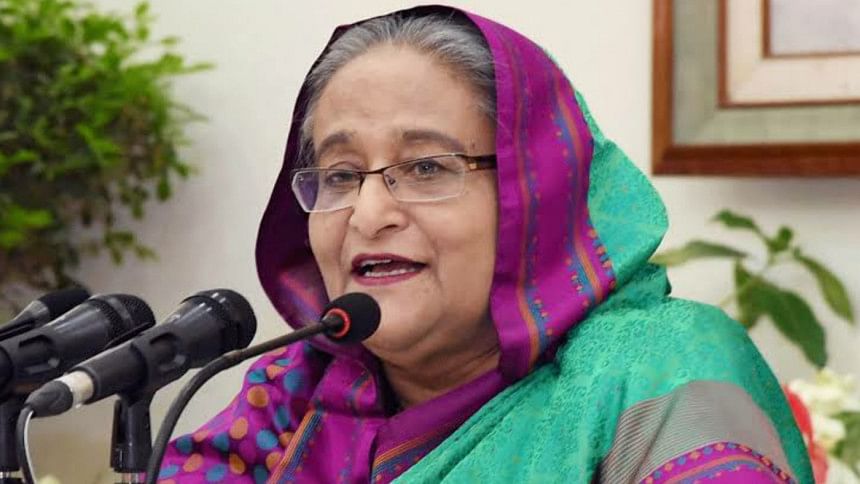An apt appraisal worthy of note

In a welcome move, Prime Minister Sheikh Hasina has questioned the need for India's Citizenship Amendment Act (CAA) that fast-tracks citizenship for "persecuted" non-Muslim minorities who had fled Pakistan, Bangladesh and Afghanistan before December 2014. "We don't understand why [the Indian government] did it. It was not necessary," she said in an interview with Gulf News during her recent visit to Abu Dhabi. The remarks marked a rare occasion when the PM has publicly spoken on the controversial law which, since it was passed on December 11, has caused violent protests across India as well as considerable disquiet within the region, including Bangladesh. Rights defenders in India say the legislation is "unconstitutional" and "divisive" as it excludes Muslims. Although statements from top officials in Bangladesh have so far been couched in diplo-speak—refusing to say anything beyond citing assurances from India of the law not having anything to do with Bangladesh—the PM's decision to address it head-on signals a departure from that approach. It also uncovers a growing unease about the law even within the policy circles in Bangladesh.
A lot, however, remains unsaid, especially with regard to how the law affects Bangladesh. India is telling us that ACC and the proposed pan-India National Register of Citizens (NRC) are India's "internal" matters and that Bangladesh has nothing to worry about—something that the PM has also referred to in her interview. We agree that CAA is an internal issue of India, but we beg to differ on the point that it will have no impact on Bangladesh. Implicit in the very use of the word "persecution" is the accusation that Bangladesh as a state did persecute its minorities, and this is a preposterous thing to suggest and, not to mention, totally baseless. A lot of what the ruling BJP leaders are now saying to advance their theory involves Bangladesh both as one of the originators of the trouble and a recipient of its potential fallouts. Although the PM has denied that any reverse migration took place post-NRC, there are widespread concerns that Indian Muslims unable to prove their citizenship could eventually seek shelter in Bangladesh. The ongoing political rhetoric in India may also hurt the communal harmony in Bangladesh.
Bangladesh is a proud nation where communities of different faiths have lived side by side for centuries. Any move that threatens that harmony should be actively protested against and done without. We hope the Bangladesh government will convey these messages and concerns of the people to the Indian side so that the reputational damage that Bangladesh has already suffered as a result of the Indian moves can be counteracted.

 For all latest news, follow The Daily Star's Google News channel.
For all latest news, follow The Daily Star's Google News channel. 



Comments